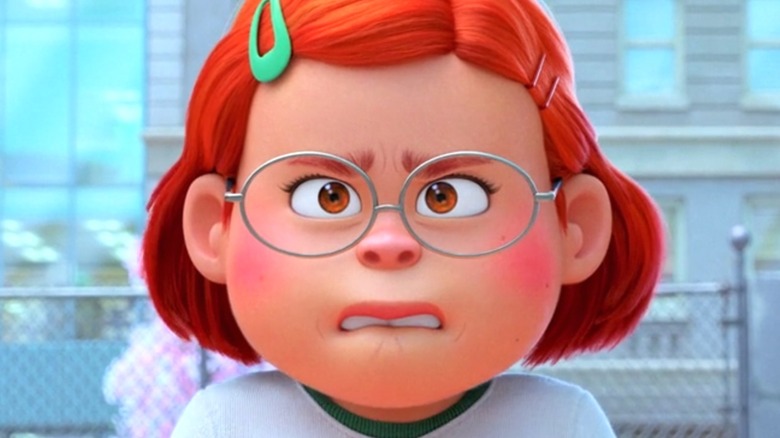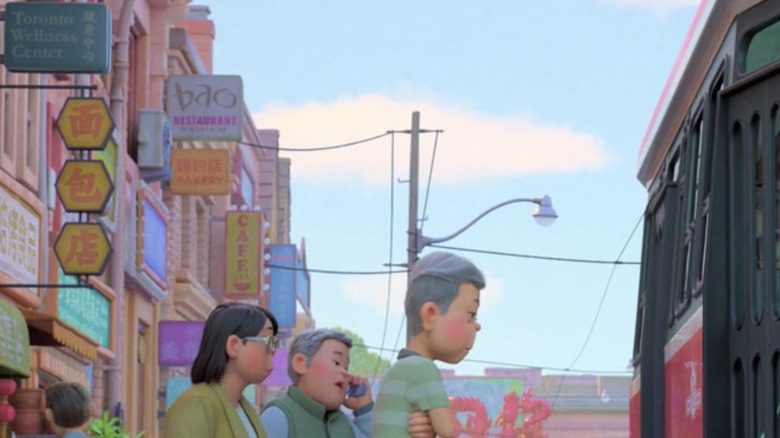The Pixar Shorts Easter Egg You Likely Missed In Turning Red
Pixar's newest film, "Turning Red," has just about everything you'd expect from the legendary animation studio, though it's certainly one of the most unique films that Pixar has ever released. The film follows the story of Meilin "Mei" Lee (voiced by Rosalie Chiang), a 13-year-old Chinese-Canadian girl growing up in Toronto who has the unfortunate habit of turning into a gigantic Red Panda whenever she gets emotional.
"Turning Red" was released through Disney+ on March 11th, and has thus far been critically acclaimed for its incredible animation, impressive voice acting, and heartwarming story – which is about par for the course as far as Pixar is concerned. Similarly, "Turning Red" continues the long-standing tradition of referencing other Pixar films through Easter eggs hidden throughout the movie. In fact, there's one incredibly important Easter egg hidden very early in the film, one which references the Academy Award-winning Pixar short film "Bao."
The Bao Easter egg is fun, but also foreshadows part of the story
Around 6 minutes into the film, we get a scene where Mei is running through Chinatown after school. She hops off of her bus and begins sprinting immediately, and some more attentive fans might have noticed that one of the shops behind her as she's running is called "Bao restaurant." The restaurant's sign is stylized in the exact same way as the title from the short film, and it just so happens that both "Turning Red" and "Bao" were directed by Domee Shi.
"Bao" also took place in Toronto, and followed a Chinese-Canadian woman who cooks a batch of baozi (a type of bun featured in many different Chinese dishes) one night for dinner. One of the buns comes to life, and she begins raising it as her own child. Much of the story of "Bao" is focused on the woman's over-protective, domineering parenting style, which eventually leads to a massive argument between her and the bun, which ends when she eats the bun in a fit of anger. The ending reveals the entire film to be a metaphor for the woman's relationship with her real son, and the two eventually reconcile by making baozi together.
This dynamic between an overbearing parent and their child is a major theme in both "Bao" and "Turning Red," and this little reference to the former acts as both a callback to Shi's previous work, and a bit of foreshadowing of the story to come.

